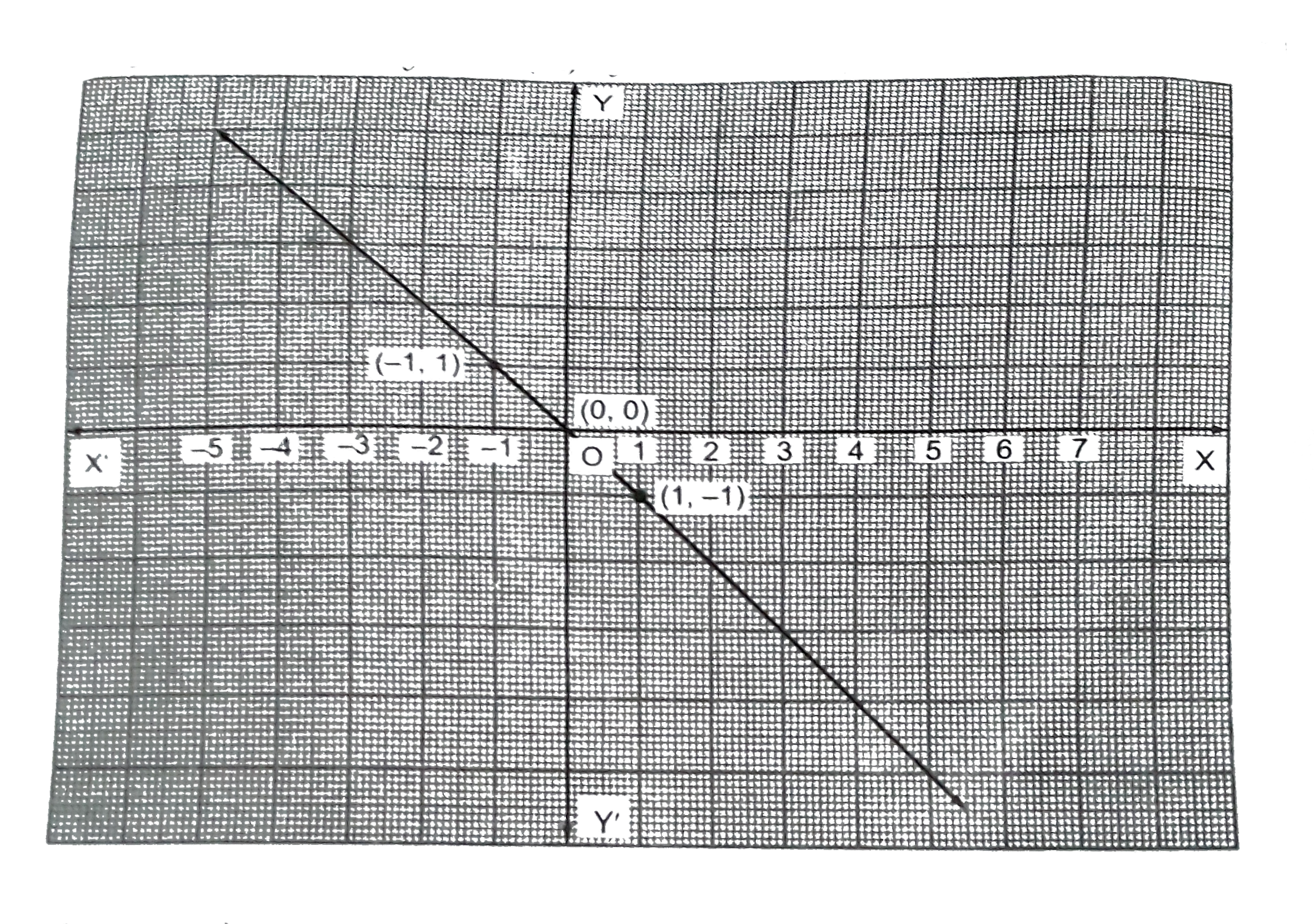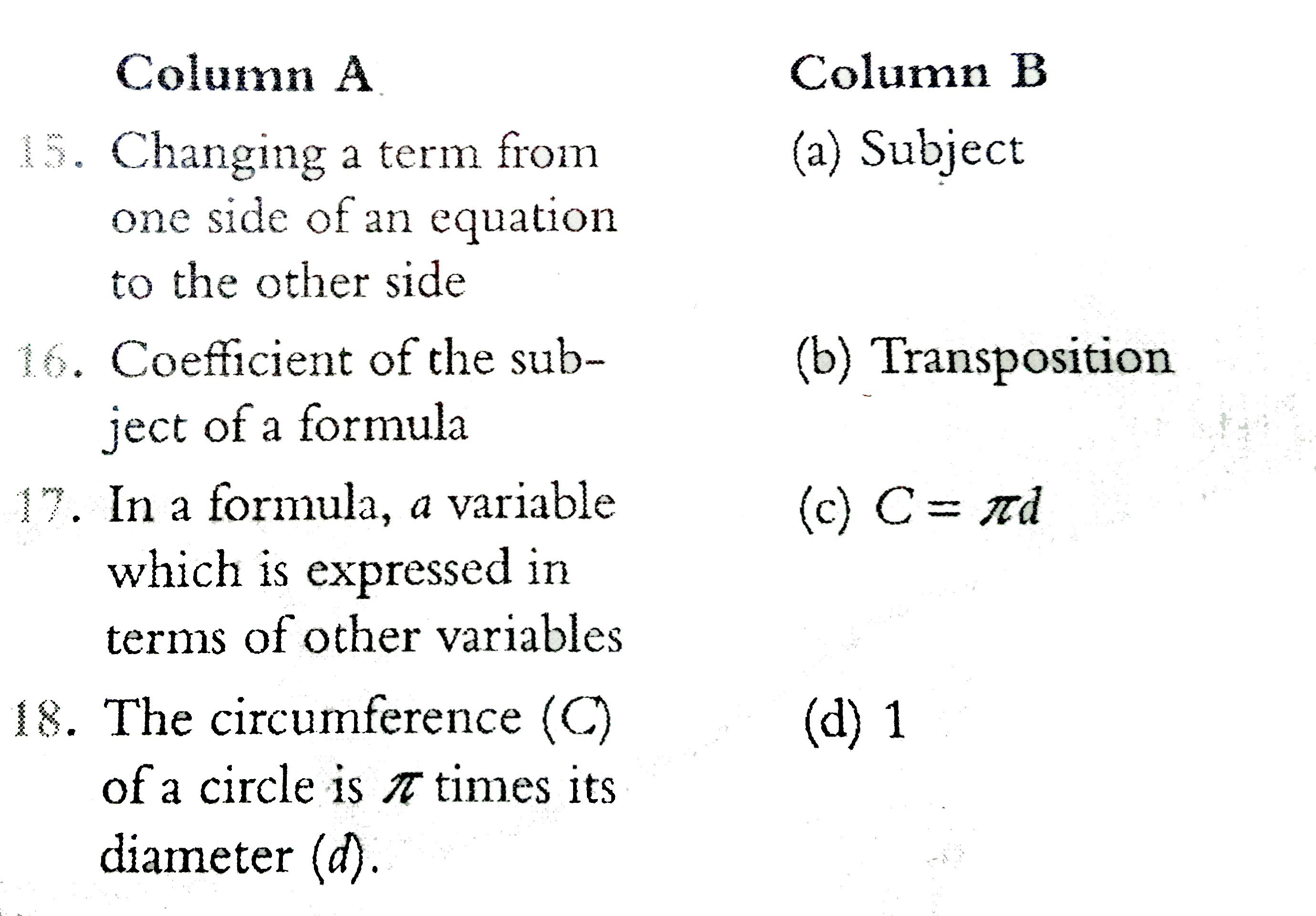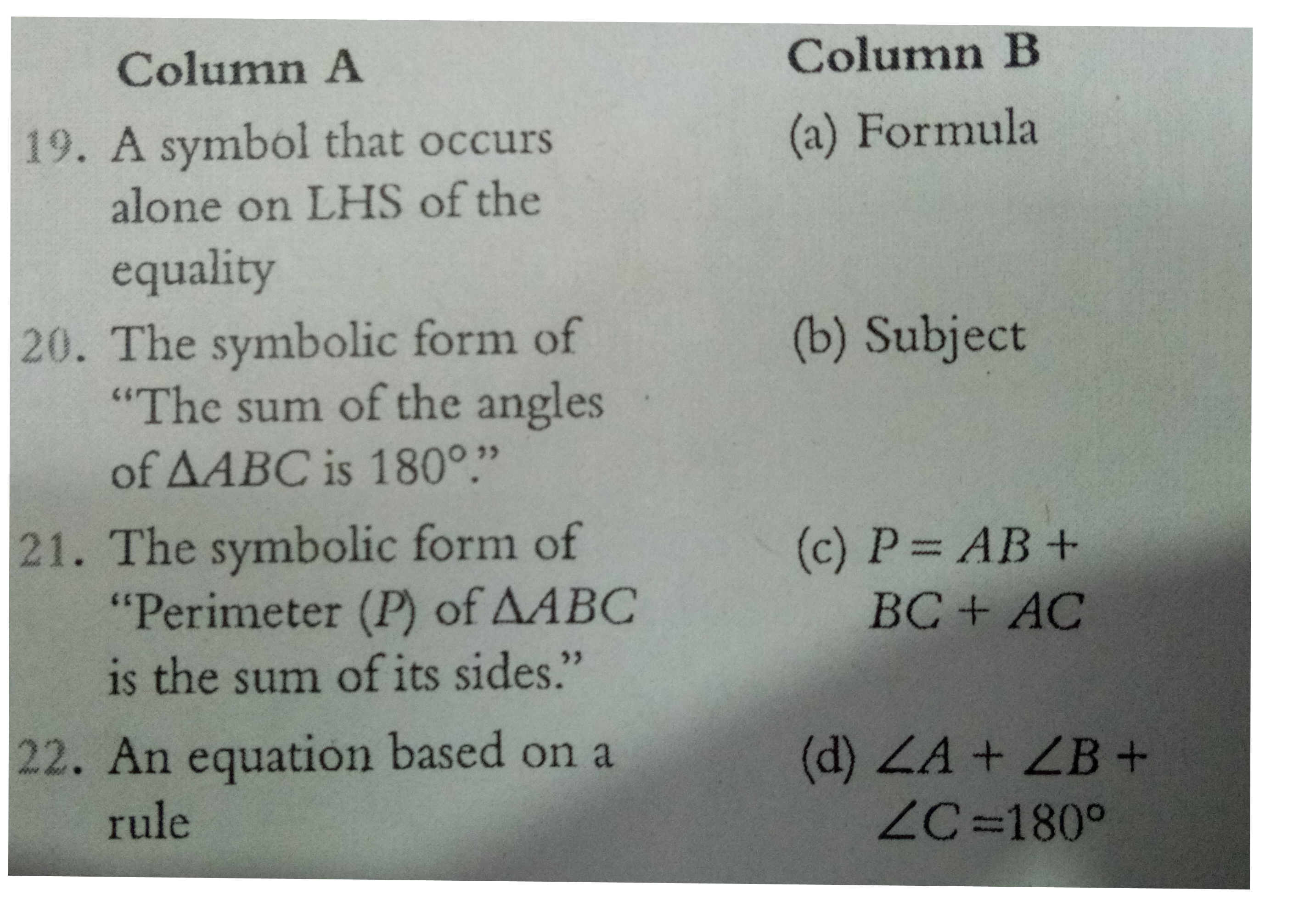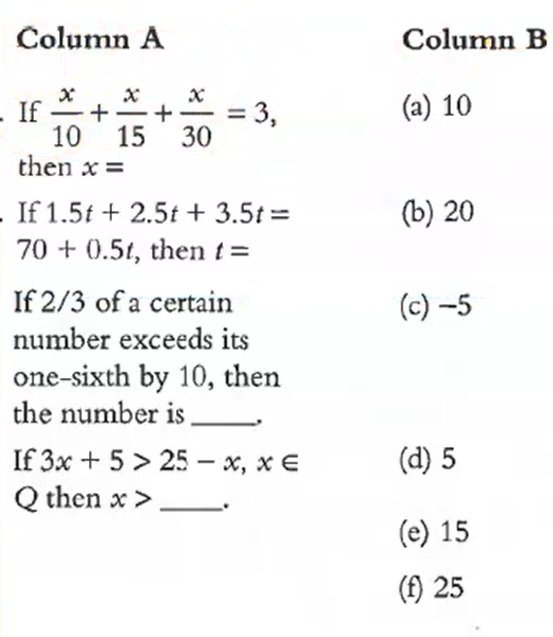निम्नलिखित विकल्पों में से, उस समीकरण को चुनिए जिसकी आलेख चित्र में दिया है:
(i) y=x
(ii)x+y=0
(iii) y=2x
(iv) 2x+3y=7x

स्पष्ट है, (−1,1) तथा (1,−1) समीकरण x+y=0 को संतुष्ट करते है ।
Topper's Solved these Questions
- दो चरो वाले रैखिक समीकरण BOOK - RD SHARMACHAPTER - दो चरो वाले रैखिक समीकरण EXERCISE - प्रश्नावली 13.4
10 Videos
- दो चरो वाले रैखिक समीकरण BOOK - RD SHARMACHAPTER - दो चरो वाले रैखिक समीकरण EXERCISE - अति लघुत्तरात्मक प्रश्न
10 Videos
- दो चरो वाले रैखिक समीकरण BOOK - RD SHARMACHAPTER - दो चरो वाले रैखिक समीकरण EXERCISE - प्रश्नावली 13.2
16 Videos
- त्रिभुज तथा उसके कोण BOOK - RD SHARMACHAPTER - त्रिभुज तथा उसके कोण EXERCISE - बहु विकल्पीय प्रश्न
28 Videos
- निर्देशांक ज्यामिति BOOK - RD SHARMACHAPTER - निर्देशांक ज्यामिति EXERCISE - बहु विकल्पीय प्रश्न
15 Videos
Similar Questions
समीकरण को हल करो:
(a) संख्या रेखा पर निरूपित कीजिए
(b) कार्तीय तल पर निरूपित कीजिए
x=2
View Solutionx -अक्ष को निरूपित करने वाला समीकरण लिखिए।
View Solutionसमीकरण में प्रत्येक के दो हल लिखिए:
3x+4y=7
View Solutionयदि किसी त्रिभुज के तीनो कोण बराबर हो, तो प्रत्येक कोण का माप होगा:
View Solutionनिर्देशांक अक्षों का प्रतिच्छेद बिंदु निम्न में से क्या कहलाता हैः
View SolutionWhich of the following symbols are not acceptable ? (i) ._(35)^(79)Br (ii) .^(79)Br (iii) ._(79)^(35)Br (iv) ._(35)Br
View SolutionDetermine the point of symmetry of a regular hexagon.
View SolutionMatch the following Column A to Column B

View SolutionMatch the following Column A to Column B

View SolutionMatch the following Column A to Column B

View SolutionThe inequation represented by the graph given below is :
View SolutionThe inequation that best describes the graph given below is _________
View SolutionThe inequation that best describes the following graph is _________
View SolutionIn the given figure, PQRS is a parallelogram. A and B are the mid-point of ¯¯¯¯¯¯PQ and ¯¯¯¯¯SR respectively. If PS=BR, then the quadrilateral ADBC is a…………………… ,
ltimg src="https://d10lpgp6xz60nq.cloudfront.net/physics_images/PS_MATH_IX_C12_E05_020_Q01.png" width="80%"gt
View SolutionAt x=0, value of (dy)/(dx) is : ltimg src="https://d10lpgp6xz60nq.cloudfront.net/physics_images/ALN_PHY_R04_E01_024_Q01.png" width="80%"gt
View SolutionIf y-x=180^(@) then find the values of x and y. ltimg src="https://d10lpgp6xz60nq.cloudfront.net/physics_images/ALN_PHY_R05_E01_034_Q01.png" width="80%"gt
View Solution
